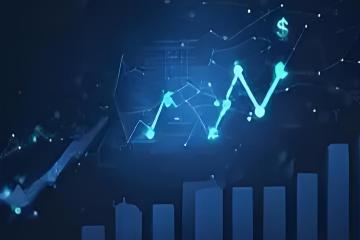After a decade characterized by relative calm, the financial markets have once again entered a phase of volatility, raising concerns among investors and analysts alikeIn this landscape of uncertainty, seasoned hedge fund manager Steve Diggle, who famously navigated the financial crisis of 2008 to garner substantial returns, is taking precautionary measuresRecently, reports have emerged indicating that his family office, Vulpes Investment Management, is planning to raise up to $250 million in the first quarter of the year to prepare for the tumultuous market conditions.
This newly raised capital is earmarked for a new hedge fund and managed accounts that aim to capitalize on market downturns, potentially generating significant returns by adopting long and short positions in equitiesDiggle, reflecting on current market dynamics, believes we are witnessing threats to stability that have parallelled levels not seen since the financial crash of 2008.
Diggle's approach is backed by a new artificial intelligence model developed by Vulpes Investment Management
Advertisements
This AI technology is designed to sift through vast amounts of public information to identify companies in the Asia-Pacific region that exhibit signs of distress, including high leverage and asset-liability mismatches, or even fraudulent activitiesIn addition to analyzing troubled companies, the new fund's stock portfolio will include bullish positions on specific stocks or indices, making for a diversified approach to risk management.
Diggle previously closed his former venture, Artradis Fund Management Pte, in March 2011. Artradis had reached its zenith in 2008, with assets skyrocketing to nearly $5 billion due to successful bets on market downturns and the financial crisisHowever, with unprecedented intervention by central banks globally, the landscape of finance shifted dramatically, leading to the eventual decline of Artradis, reflecting the fragility of even the most successful trading strategies.
In drawing parallels to the past, Diggle argues that the current sentiment and market environment display striking similarities to the conditions observed from 2005 to 2007. He emphasizes an alarming reality: “The hidden dangers today surpass those in the past, with a significantly heightened risk of problems arising, yet the pricing of these risks has diminished.” This observation provokes a critical evaluation of economic stability, pointing out crucial indicators such as persistently high valuations in the U.S
Advertisements
stock market, an oversupply crisis in commercial real estate, soaring federal debt, and increasingly tightening credit spreadsEach of these elements contributes to a precarious financial ecosystem that could ignite at any moment.
Moreover, Diggle expands the discussion beyond economic factors to encompass the implications of geopolitical tension, which he suggests could further exacerbate market volatilityThe current financial ecosystem is profoundly shifting, witnessing a burgeoning demographic of retail investors who, through pooled resources, are gaining significant market influenceThe rise of passive investment funds using standardized strategies to attract investor capital and the aggressive tactics employed by high-frequency traders utilizing complex algorithms create a web of market dynamics that can erupt into chaos, much like the market upheavals witnessed in March 2020 and August 2024.
Diggle’s background is rich with experience, having led various teams at Lehman Brothers before co-founding Artradis with Richard Magides in 2001. His foresight during the impending financial crisis allowed for tactical bets on increasing volatility through over-the-counter options and variance swaps
Advertisements
Additionally, Artradis held credit default swaps (CDS) with a notional value exceeding $8 billion, which served to hedge against bank defaults while betting against the financial management proficiencies of those institutions.
Following the collapse of Lehman Brothers in September 2008, the market’s CDS settlement price escalated to 367 times what Artradis purchased, while UBS’s comparable instruments yielded approximately 20 times the returnSuch historical contexts pave the way for understanding the skepticism present in today’s market practices.
At 60 years old, Diggle has transitioned away from daily trading activities, opting instead to provide strategic guidance centered on overall risk management concerning market volatilityRobert Evans, a former employee of Citigroup, will take the primary portfolio management role for the new fund, bringing expertise that further bolsters the credibility of this new venture.
While it may be imprudent to predict a market collapse in 2025 or any specific timeline due to the inherent unpredictability of human behavior, Diggle asserts that a reevaluation of hedging strategies is paramount for investors across the spectrum
- Factors Influencing Energy Futures Market
- Trends in Financial Technology Development
- Trends in Capital Flows in Emerging Markets
- Meeting the Needs of Foreign Enterprises
- Applications of Supply Chain Finance
“It is critical for everyone to reconsider their hedging strategies in light of the evolving market realities,” he advises.
The current narrative surrounding hedge funds and investments hints at an era of increased complexity and rapid changeAs investors navigate this evolving landscape punctuated by technological advancements, geopolitical intricacies, and economic uncertainty, adapting their strategies becomes not just beneficial but essentialThis newfound relativism to volatility serves as a vital reminder of the cyclical nature of finance—a landscape perpetually in fluxThe lessons learned from past crises undoubtedly inform today’s investment strategies, as historical trends suggest that those who adapt and respond in real-time can withstand the pressures of an ever-changing financial climate.
As Steve Diggle and his team at Vulpes Investment Management gear up for a new chapter in investment, the financial world watches with bated breath, both curious and anxious about the impending volatility and the strategies that will emerge to manage it
